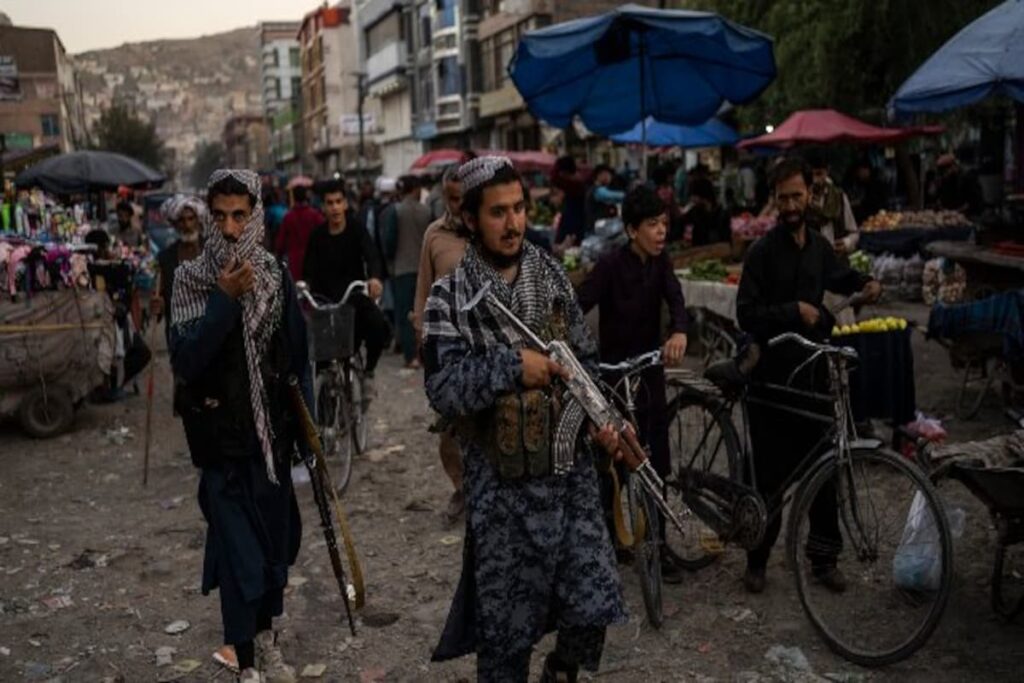
Afghanistan’s key Taliban leaders studied at Pakistan’s madrassa: Report
Darul Uloom Haqqania madrassa, one of Pakistan’s largest and oldest seminaries and dubbed as the‘university of jihad’by its critics for helping sow violence across the region for decades, has educated further Taliban leaders than any academy in the world and its alumni now hold crucial positions in Afghanistan, according to a media report.
The seminary in Pakistan’s restive Khyber Pakhtunkhwa fiefdom has had an outsize effect in Afghanistan. The seminary’s alumni innovated the Taliban movement and ruled Afghanistan in the 1990s.
The academy has argued that the Taliban should be given the chance to show they’ve moved beyond their bloody ways since they first ruled Afghanistan two decades ago, The New York Times reported on Friday.
“ The world has seen their capabilities to run the country through their palms on both the politic front and on the battleground,” Rashidul Haq Sami, the seminary’svice-chancellor, told the NYT.
Seminary’s late chancellor Samiul Haq, who was boggled at his hearthstone in Islamabad in 2018 and was Sami’s father, was known as the “ father of the Taliban.”
” Being the alma mammy of scores of Taliban leaders, Haqqania clearly commands their respect,” said Azmat Abbas, author of‘Madrassa Mirage A Contemporary History of Islamic Schools in Pakistan.’
Sirajuddin Haqqani, 41, who led much of the Taliban’s military sweats and carries a USD 5 million bounty from the US government on his head, is the new amusement innards minister of Afghanistan and an alumnus. So is Amir Khan Muttaqi, the new foreign minister, and Abdul Baqi Haqqani, the advanced education minister, the report said.
The justice minister, the chief of the Afghan water and power ministry, and a variety of governors, military commanders and judges also passed through the Haqqania seminary, academy directors say.
“ We feel proud that our scholars in Afghanistan had first broken the Soviet Union and now transferred the US quilting. It’s an honour for the madrassa that its graduates are now ministers and hold high positions in the Taliban government,” Sami said.
Numerous of the alumni borrow the name Haqqani as a symbol of pride. The Haqqani network — the Taliban’s military sect, responsible for hostage-taking of Americans, complex self-murder attacks and targeted assassinations — is named after the madrassa and retains connections there, the report said.
The Taliban palm in Afghanistan is a source of great pride for the seminary’s scholars.
The academy’s critics call it a‘university of jihad’and condemn it for helping to sow violence across the region for decades. And they worry that revolutionist madrassas and the Islamist parties linked to them could be inspired by the Taliban’s palm, potentially fueling farther radicalism in Pakistan despite that country’s sweats to bring further than seminaries under lesser government control.
Pakistan has long had an uneasy relationship with madrassas like Haqqania. Leaders who formerly saw the seminaries as a way to impact events in Afghanistan now see them as a source of conflict within Pakistan.
The country has its own Taliban movement, the Pakistani Taliban, or TTP, which has been responsible for a slew of violent attacks in recent times. The two sides reached a check- fire this month.
Renewed signs of radicalism in madrassas have appeared, especially since the fall of Kabul, Afghanistan. Scholars have heldpro-Taliban rallies. At the Red Mosque in Islamabad, the point of a deadly raid by security help 14 times agone, Taliban flags were raised above a girls’madrassa coming door.
Pakistan’s government has tried a blend of fiscal support and behind-the- scenes prodding to telephone down radicalism within the seminaries. The government of Prime Minister Imran Khan gave the Haqqania seminary USD1.6 million in 2018 and USD1.7 million in 2017 for “ mainstreaming” it. The finances helped the madrassa construct a new structure, a badminton court and a computer lab, among other systems, the report said.

